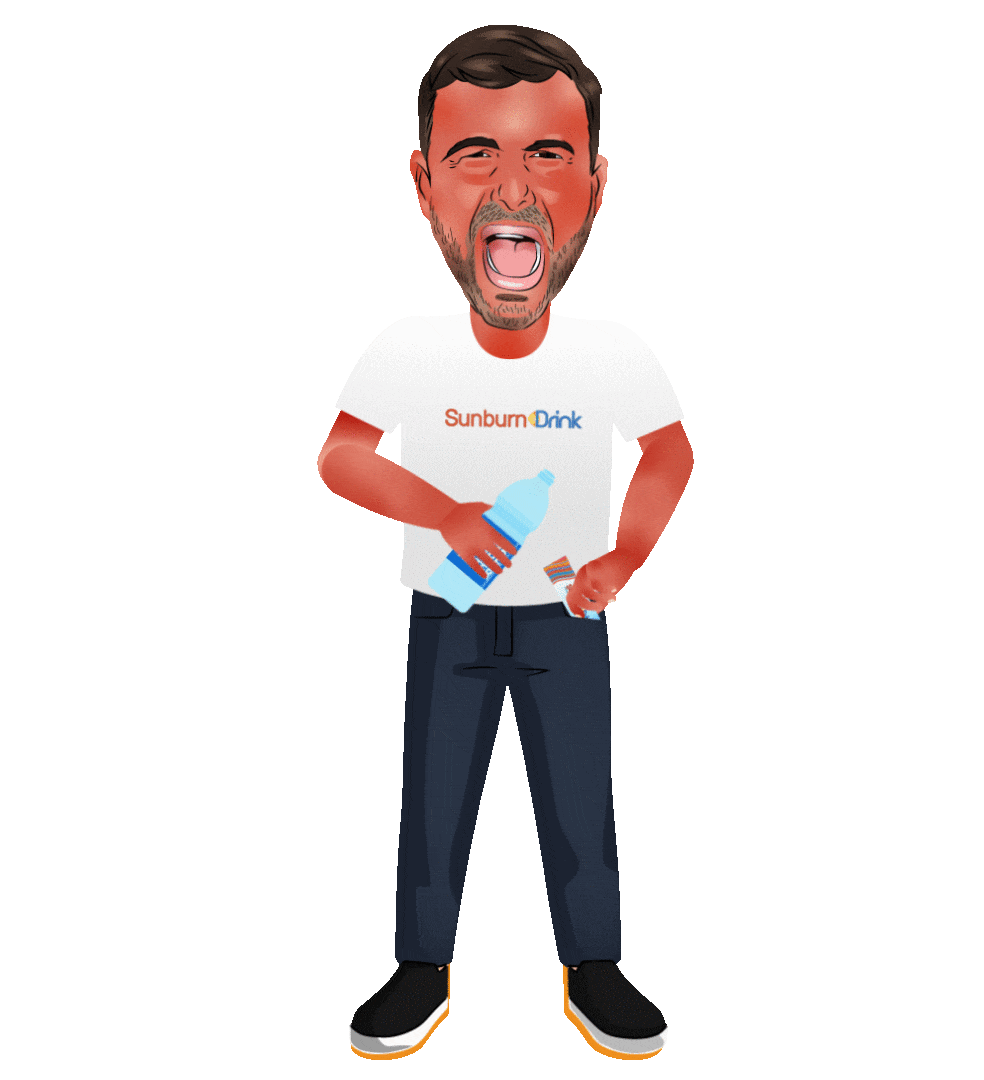Understanding the Risks and Precautions
Let’s admit it.
It is quite challenging to resist the temptation of showing your cool tattoos on sunny beaches.
And those who don’t have tattoos are likely to get it at any cost—even on their sunburned skin.
After all, summer is the best time to do that.
But it leads to one question—can you get a tattoo on a sunburn?
In other words, is it safe to get tattoo on a peeled, inflamed, and blistered skin caused by the sun?
Let’s find the answers.
Can You Tattoo on a Sunburn?
The short answer is no.
Sunburn is essentially skin damage resulting from excessive exposure to UV rays, affecting the outer layers of your skin. This is because sunburned skin becomes inflamed, sensitive, and painful, making it unsuitable for tattooing. The pain and discomfort associated with sunburned skin can intensify during the tattooing process, making it a challenging and potentially unsafe experience.
So you should avoid getting a tattoo on a sunburn.
Can You Get a Tattoo on Peeling Skin?
Tattooing on sunburned skin is not only painful but also impractical.
Peeling skin poses a unique set of challenges because the stencils, inks, and ointments used by tattoo artists are not designed for use on sunburned or peeling skin.
If you arrive at your tattoo appointment with peeling skin due to sunburn, the artist may need to move the stencil to an unaffected area or reschedule the appointment until the damaged skin has fully healed.
Should You Inform Your Tattoo Artist About Sunburn?
Yes, it’s essential to communicate with your tattoo artist if you have sunburn before your appointment.
Contact your artist as soon as possible, whether through email or direct messaging and inform them about your sunburn. Prompt communication can help avoid potential complications and ensure a smooth tattooing experience.
How Long After Sunburn Can You Get a Tattoo?
It’s crucial to allow your sunburned skin to fully heal before considering a tattoo.
Tattooing sunburned skin is not only painful but also carries a high risk of healing complications. Your skin needs time to recover from sun damage, and attempting to tattoo it prematurely can exacerbate the problem.
Wait until your skin shows no signs of blisters, discoloration, or peeling, which typically takes about a week. To expedite the healing process, use after-sun products or daily moisturizers as recommended.
Can You Get a Tattoo on Blistered Skin?
Tattooing on blistered skin should be avoided.
Sunburned skin is already sensitive and damaged, and adding the stress of tattooing can increase the risk of infection and healing complications. Even worse, it can lead the skin to infection.
Most tattoo artists are likely to refuse to work on sunburned or blistered skin to prioritize the client’s safety and ensure the best tattoo outcome.
Does Sunburn Fade Tattoos?
Yes, sunburn can cause tattoos to fade. Sunburn exacerbates the fading process by causing blisters, scabbing, and shedding of skin layers, resulting in a patchy-looking tattoo. Sun exposure is a known factor in tattoo fading, and sunburn only accelerates this effect.
To protect your tattoos from fading, apply sunscreen with SPF50+ to heal tattoos when exposed to sunlight. However, remember that you cannot apply sunscreen to a new tattoo, so keep it covered and follow the aftercare instructions provided by your tattoo artist.
Do Tattoos Protect Against Sunburn?
Tattoos, like any other part of your skin, are susceptible to sunburn. Having tattoos does not offer any protection against sunburn. To prevent sunburn on tattooed skin, apply sunscreen, wear loose clothing that covers the tattooed area, and avoid direct sunlight during the healing period of a new tattoo.
How to Treat Sunburn on a New Tattoo?
If you’ve sunburned your new tattoo, it’s essential to handle it with care. Hannah recommends leaving it alone and avoiding any irritants. Here’s how to care for sunburn on a new tattoo:
- Leave it to dry out.
- Avoid touching it.
- Do not burst any blisters.
- Refrain from applying any creams.
- Keep it covered with light, breathable clothing.
Additionally, monitor your sunburned tattoo for signs of infection. If it begins weeping yellow/green fluids, becomes increasingly inflamed (not related to sunburn), or spreads over time, consult your healthcare professional for guidance.
Safeguarding Your New Tattoo from Sunburn
To safeguard your new tattoo from sunburn, follow these precautions:
- Keep it covered with lightweight clothing.
- Avoid direct sunlight.
- Apply sunscreen with SPF50+ once the tattoo has fully healed.
- Refrain from swimming during the healing phase.
- While your tattoo is healing, stick to your regular moisturizer, and ensure that it remains protected from direct sunlight.
- Your tattoo artist’s aftercare instructions are essential for ensuring proper healing and preventing sunburn on your new tattoo.
Summer Tattoo Tips To keep your tattoos looking their best during the summer months, it’s crucial to prioritize sun protection. Remember that you are not invulnerable to the sun’s harmful effects, and your skin, including tattooed areas, requires care.
In addition to protecting your skin from sunburn, using sunscreen also helps preserve the vibrancy and longevity of your tattoos. By minimizing UV exposure, you can ensure that your tattoos remain vibrant for years to come.
The Conclusion:
Tattooing on sunburned or peeling skin should be avoided, as it can lead to pain, discomfort, and potential complications. To maintain the integrity of your tattoos and protect your skin, take precautions to prevent sunburn on tattooed areas.
By prioritizing proper aftercare and sun protection, you can enjoy your tattoos in all their glory while staying safe and comfortable in the summer sun.
Overall, avoid getting a tattoo on a sunburn. Instead, let it heal first. Keep in mind that the health of your skin important than anything else.

